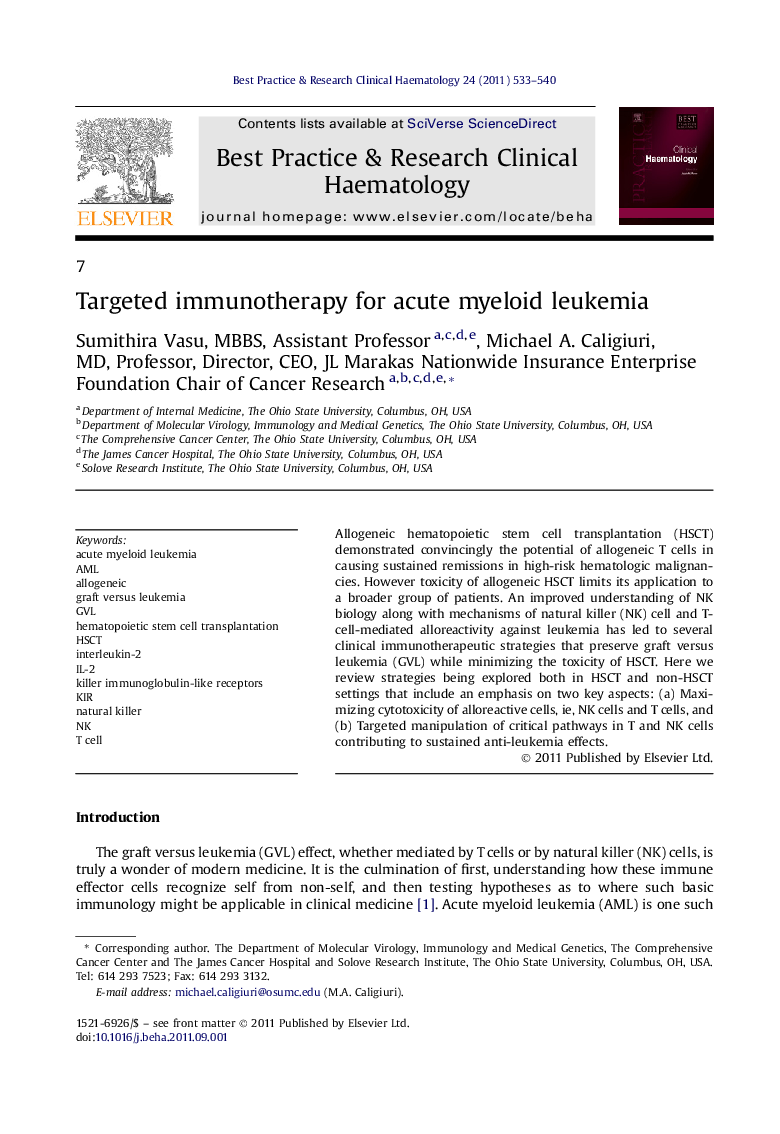| Article ID | Journal | Published Year | Pages | File Type |
|---|---|---|---|---|
| 2100381 | Best Practice & Research Clinical Haematology | 2011 | 8 Pages |
Allogeneic hematopoietic stem cell transplantation (HSCT) demonstrated convincingly the potential of allogeneic T cells in causing sustained remissions in high-risk hematologic malignancies. However toxicity of allogeneic HSCT limits its application to a broader group of patients. An improved understanding of NK biology along with mechanisms of natural killer (NK) cell and T-cell-mediated alloreactivity against leukemia has led to several clinical immunotherapeutic strategies that preserve graft versus leukemia (GVL) while minimizing the toxicity of HSCT. Here we review strategies being explored both in HSCT and non-HSCT settings that include an emphasis on two key aspects: (a) Maximizing cytotoxicity of alloreactive cells, ie, NK cells and T cells, and (b) Targeted manipulation of critical pathways in T and NK cells contributing to sustained anti-leukemia effects.
